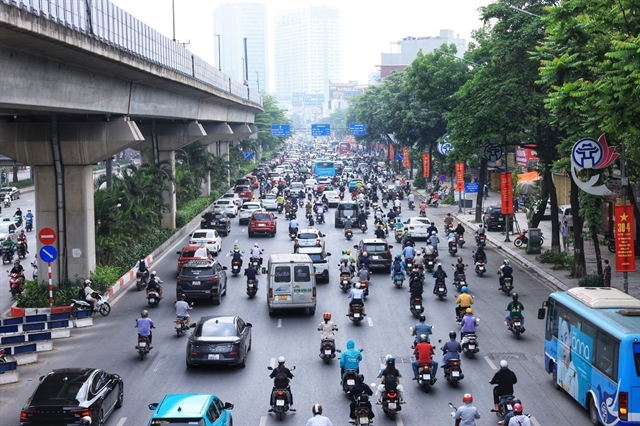Ha Noi to ban fossil-fuel motorbikes in inner city from July 2026
VGP - Ha Noi will ban gasoline-powered motorbikes and mopeds from areas within Ring Road 1, starting July 1, 2026, under a new directive issued by Prime Minister Pham Minh Chinh.

Ha Noi to ban fossil-fuel motorbikes in inner city by July 2026
The move is part of a broader national initiative to combat environmental pollution in major urban centers, particularly in the capital city of Ha Noi, which regularly ranks among cities with the worst air quality worldwide. River pollution in Ha Noi has also remained consistently above safe levels.
To address these issues, the Prime Minister tasked the Ha Noi People's Committee to draft a clear roadmap to phase out fossil-fuel two-wheelers inside Ring Road 1 by mid-2026.
The directive outlines a phased approach to expanding the restrictions:
By January 1, 2028: The ban will cover all motorbikes and mopeds within Ring Roads 1 and 2, along with further limitations on privately owned gasoline-powered cars.
By 2030: The restrictions will expand to include areas within Ring Road 3.
To facilitate the transition, the local authorities is required to release a comprehensive low-emission zone (LEZ) plan by the third quarter of 2025, along with a public awareness campaign to help residents adapt to the changes.
As part of the shift toward cleaner transportation, the city will enhance its public transport system, focusing on the expansion of electric buses and trains, and the construction of charging stations and maintenance facilities for clean-energy vehicles.
In addition, additional measures under consideration include raising registration and parking fees for fossil-fuel vehicles in central districts, with a detailed fee roadmap due by late 2025; launching a pilot ban on single-use plastics in restaurants, hotels, and food service businesses within Ring Road 1 starting Q4 2025; developing a plan to relocate polluting factories from residential areas by 2028 and drafting a strategy by Q3 2025 to clean up inner-city rivers, canals, and streams.
The directive also calls for the construction of modern, high-tech waste treatment plants to reduce dependency on landfills and address waste accumulation more effectively.
By the end of 2024, Ha Noi was home to 9.2 million vehicles of all types (excluding those belonging to central government agencies). Of these, the city directly manages over 8 million vehicles, including 1.1 million cars and more than 6.9 million motorbikes. In addition, about 1.2 million cars and motorbikes from other provinces and cities also circulate within Ha Noi.
According to Ha Noi’s Transport Master Plan through 2030 with a vision to 2050, Ring Road 1, forms a closed loop around the inner-city core of the capital. The streets and roads along this ring include: Tran Khat Chan – Dai Co Viet - Xa Dan - O Cho Dua - De La Thanh - Hoang Cau - De La Thanh - Cau Giay - Buoi - Lac Long Quan - Au Co - Nghi Tam - Yen Phu - Tran Nhat Duat - Tran Quang Khai - Tran Khanh Du - Nguyen Khoai./.

